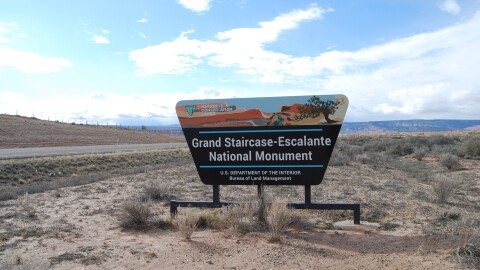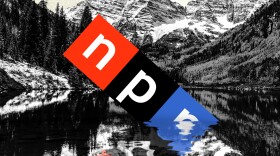-
Colorado may restrict SNAP purchases of sugary drinks starting April 30, 2026, a public health move critics say limits personal choice.
-
Days after rejecting the same request, lawmakers signed off on millions of dollars in prison bed funding as overcrowding pressures grow.
-
Four days of negotiations in a Salt Lake City conference room earlier this month did not appear to have sparked a breakthrough.
-
-
Federal auditors say that Congress could use an obscure law called the Congressional Review Act to throw out the Utah monument's resource management plan, which sets which activities are or aren't allowed on the 1.9 million acres.
-
Wildfire has numerous consequences for the West and, with many statehouses now in session, lawmakers across the region are trying to respond. Now there's a new tool to track reform efforts.
-
This is the legislature's latest attempt to regulate the controversial sector that forms the backbone of daily digital life.
-
Among Mountain West states rates vary drastically
-
When the conditions are right, land managers sometimes allow naturally ignited fires to burn. And new research shows that there can be significant ecological benefits when they do so.
-
President Trump's selection of Pearce has provoked a backlash from many environmental groups and local Western officials, who point to his record of supporting public land sales and the oil and gas industry.
-
A group of Western Slope counties has completed research into the viability of opening a sustainable aviation fuel plant. They determined it wouldn't be cost competitive, based on current technology.
-
The announcement from Parks and Wildlife on Wednesday came three months after the Trump administration blocked Colorado's original plan to capture a second batch of wolves in British Columbia and fly them to the state.
-
“It isn’t just an affront to localism. It’s an attempt to reengineer thought.”
-
The First People's Festival took place in Estes Park, Colorado, from January 16 to 19. It brought people from Tribal communities across the Rocky Mountain West together for celebration, education, and remembrance. Hear those and other stories on this week's Regional Roundup, Rocky Mountain Community Radio.
-
Lawmakers rejected a request to add hundreds of new prison beds, saying the state must first address staffing shortages and parole backlogs.
-
From January 16-18, 2026, the First People's Festival in Estes Park brought together Indigenous artists, dancers, educators, and families for a fashion show, an art market, cultural demonstrations, and a powwow, creating a space for celebration, education, and remembrance.
-
Lawyers with a libertarian legal group allege a Wyoming city violated her constitutional rights when denying an animal permit.
-
Ridgway oil painter Emma Kalff talks about what it takes to make a living as a visual artist today, from balancing creative work with business demands to teaching online as a way to push back against isolation in rural communities.



















